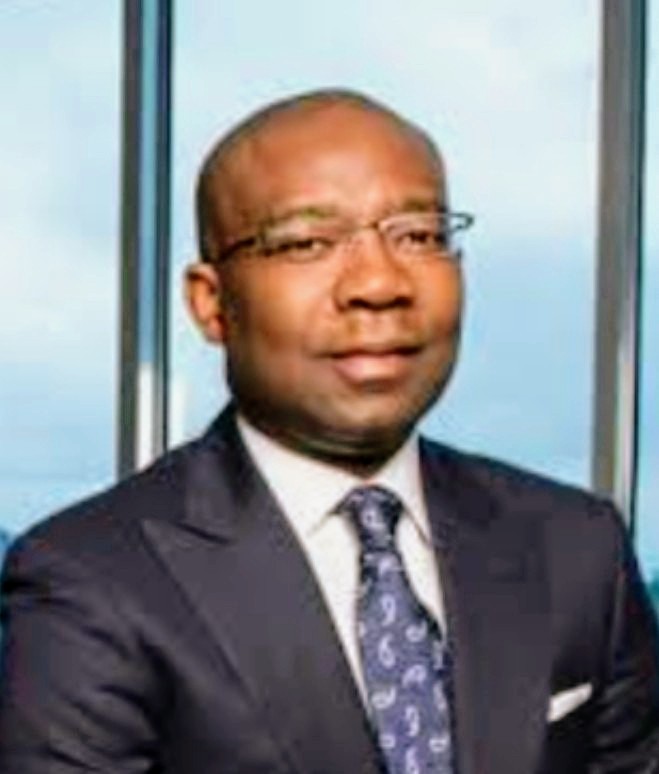
Since its inception in 1968, ICMA has played a pivotal role in setting standards and promoting efficiency in international capital markets. Bringing together over 600 member institutions from 66 countries, ICMA fosters collaboration among market participants, regulatory authorities, and governments to advance market-based prosperity. The conference provided a platform for thought leaders and industry experts to share insights and drive innovation in financial markets across the world.
As an African deeply involved in banking, finance, and investments, I am continually drawn to the pivotal question:
Is the risk premium imposed on Africa justified or an unfair hindrance? Speaking at the International Capital Markets Association Annual General Meeting and Conference 2024 in Brussels, Belgium I had the opportunity to delve into this complex issue that has significant implications for the continent’s economic future.
Capital markets are the bedrock of any nation’s economy, channelling resources to the best ideas and enterprises. Efficient markets can be a force for good, driving prosperity and innovation. However, for markets to function optimally, they must be recognised and supported by influential players. When we consider the global capital market, valued at over $250 trillion in 2023, with debt markets constituting about half of that, Africa’s share is a mere 1%, despite our population contributing over 11% globally. This disparity highlights how Africa has been left behind in the wave of prosperity that capital markets have brought to the world.
To rectify this, Africa must integrate with global financial markets, expand its reach, diversify, and strengthen its sources of finance, and create investment opportunities that generate wealth. Failure to do so obstructs our path to economic success. This brings us to the crucial question: Is the African risk premium unfair or justified?
African issuers of debt and equity, particularly in Sub-Saharan Africa, face higher financing costs compared to their counterparts in other regions. This discrepancy puts them at a significant disadvantage, akin to playing a sport with multiple handicaps. For instance, a goalkeeper expected to defend against goals with one arm tied behind their back – and sometimes even more severe restrictions – illustrates the challenges African issuers face. This unfair handicap affects millions who depend on these issuers for employment, pensions, and economic stability.
Recent research, including a 2023 IMF working paper, has sought to uncover the reasons behind the higher cost of issuing debt for Sub-Saharan African countries compared to similar nations elsewhere. An analysis of over 1,500 sovereign fixed-coupon bond issues between 2003 and 2021 revealed that Sub-Saharan countries pay significantly higher coupons, with a differential of 150 to 200 basis points. This additional cost can amount to 20% to 40% of the total debt servicing cost, potentially doubling the cost over the life of the bond compared to competitors with similar credit ratings.
This situation demands a critical examination of the role of credit rating agencies. While these agencies are essential for global, regional, and national capital markets, their assessments can sometimes reflect biases. The 2008 financial crisis, depicted in the film “The Big Short,” serves as a stark reminder of how rating agencies can misjudge markets they ostensibly understand. If they could get it so wrong in the US mortgage market, it is conceivable they might also misjudge African markets, which they know less well.
In: “The Big Short,” Ryan Gosling’s character, Jared Vennett, explains how subprime mortgage loans were repackaged into collateralized debt obligations (CDOs) and given triple-A ratings, despite their inherent risks. He uses a tower of wooden blocks to illustrate how these unstable loans were stacked upon each other, eventually collapsing, and triggering a global financial crisis. This analogy highlights the potential for rating agencies to misinterpret the risks in markets they are less familiar with, such as those in Africa.
From an African perspective, the persistent high cost of debt issuance points to a possible negative bias. Although rating agencies play a crucial role, their assessments may inadvertently impose an unfair burden on African issuers, exacerbating their financial challenges. This bias, whether intentional or not, results in higher borrowing costs, which hinder economic development and prosperity for millions of Africans.
Addressing this issue requires both external and internal efforts. Globally, there needs to be a reevaluation of how African markets are perceived and rated. This includes recognising the unique challenges and opportunities present in these markets. Internally, African countries must improve data transparency and financial practices to build trust and reduce borrowing spreads. By providing clearer, more reliable financial information, African issuers can enhance their credibility and potentially lower their financing costs.
At the same time, it is crucial to foster a more nuanced understanding of African markets among international investors and rating agencies. Educational initiatives and increased engagement between African financial institutions and global counterparts can help bridge the knowledge gap and reduce perceived risks. By showcasing successful African enterprises and investment opportunities, we can challenge the negative stereotypes that contribute to higher risk premiums.
Furthermore, African governments and private sector leaders must advocate for fairer treatment in the global financial system. This includes lobbying for more equitable rating practices and highlighting the positive developments in African economies. Collaborative efforts between African nations can also strengthen their bargaining power and influence in international financial forums.
Also Read:
Tinubu condoles with Jimi Agbaje over passing of his son
Biafra day: Anambra residents comply with IPOB’s call, observe sit-at-home
The Africa risk premium: Unfair or unjustified?, by Aigboje Aig-Imoukhuede
Union Bank commemorates Children’s Day with Barnyard Children’s Fiesta
Union Bank commemorates Children’s Day with Barnyard Children’s Fiesta
In conclusion, the Africa risk premium is a multifaceted issue that requires a concerted effort to address. While some risk factors are inherent, the extent of the premium imposed on African issuers is often unjustified and reflects biases that need to be challenged. By improving data transparency, fostering greater understanding, and advocating for fairer treatment, we can work towards a more equitable financial landscape that supports Africa’s economic growth and development.
As we strive to integrate Africa more fully into the global financial system, it is essential to remember that the prosperity of the continent is not just an African concern but a global one. A thriving Africa contributes to global stability and economic growth, benefiting everyone. Therefore, addressing the Africa risk premium is not only a matter of fairness but also of global economic interest.
. Being a keynote address delivered by distinguished banker, investor, and philanthropist, Aigboje Aig-Imoukhuede, at the 56th Annual General Meeting and Conference of the International Capital Market Association last week at The Square, Brussels, Belgium









